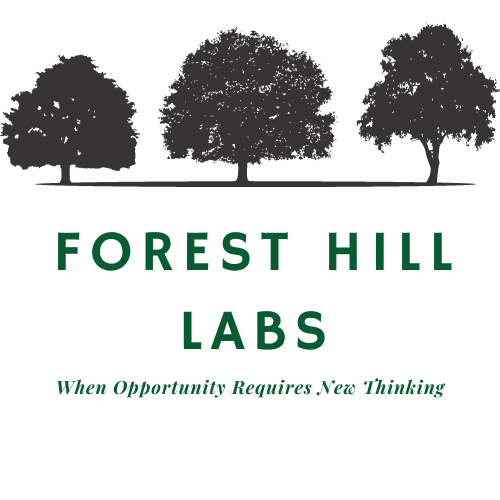
Investors & Health Markets Blog
The Healthcare Beat: Daily News on Healthcare Issues FHL Tracks
Artificial Intelligence in Healthcare - All the news we are reading
by Margaret Wehrenberg / Published February 15th, 2024
“Little Peggy - All About the News” Copyright FHL 2024
YOUR "DAILY DOSE" OF AI HEALTHCARE NEWS
Here are some recent developments related to artificial intelligence (AI) in healthcare:
Regulating AI in Healthcare: Policymakers are grappling with how to regulate AI in healthcare. The industry believes that regulators are just starting to catch up, and there’s a risk of getting it wrong. The use of AI and machine learning is gaining momentum, and meaningful adoption is on the horizon. One expert predicts that incentivizing the “meaningful use” of AI will play a crucial role in shaping its integration into healthcare systems1.
Explainable AI (XAI): In 2024, responsible and explainable AI will take center stage. Healthcare professionals are wary of “black box” AI systems, where decisions are made without clear explanations. The trend now leans toward AI models that can provide transparent reasoning for their predictions. As healthcare leaders become more sophisticated in their understanding of AI, they seek solutions that balance innovation with accountability2.
Tech-Enabled Payment Models: Expect greater adoption of tech-enabled, advanced payment models. These models leverage AI and data analytics to optimize payment processes, improve revenue cycles, and enhance financial sustainability for healthcare organizations. As the industry adapts to the “new normal,” innovative payment approaches will continue to evolve1.
Revolutionizing Diabetes Management: AI and the Internet of Things (IoT) are transforming healthcare. For instance, an AI-powered mobile app integrated with continuous glucose monitoring systems has revolutionized diabetes treatment. Personalized care plans and improved patient outcomes are now achievable through these technologies3.
Generative AI Under the Microscope: Healthcare organizations are closely examining the role of generative AI. Experts discuss its potential, benefits, and challenges. As AI continues to evolve, understanding its impact on healthcare becomes critical for informed decision-making4.
In summary, AI is becoming the “new normal” in healthcare, with meaningful use, explainability, and innovative payment models driving its adoption. Exciting times lie ahead as technology reshapes patient care and healthcare delivery.
OUR DAILY "NEW" NEWS STORIES!
The Food and Drug Administration has approved 692 AI products. Algorithms are helping to schedule patients, determine staffing levels in emergency rooms and even transcribe and summarize clinical visits to save physicians’ time. They’re starting to help radiologists read MRIs and X-rays.
'Behind the times': Washington tries to catch up with AI's use in health
www.msn.com/en-us/health/other/behind-the-times-washington-tries-to-catch-u
Revolutionizing Healthcare: The Integral Role Of AI And IoT In Shaping Modern Medicine (forbes.com)
Roundtable: Healthcare Organizations Put Generative AI Under the Microscope | HealthTech Magazine
The Role of Artificial Intelligence in Enhancing Healthcare: A Promising Future - TechBullion
How AI and Wearable Data Could Drive Better Health Outcomes (pymnts.com)
Happy not Monday everyone!
Love you mom.
A.I. & Digital Thought Leadership Library
Forest Hill Labs has been producing new content and recommendations for A.I. and digital markets and policy for a decade.
Our library of resources is quite broad as a result. And all original thinking. Please enjoy.
by Robert Horne / Published February 7 2024
Forest Hill Labs has been producing new content and recommendations for A.I. and digital markets and policy for a decade. Our library of resources is quite broad as a result. And all original thinking. Hope you enjoy.
Forest Hill Labs Compendium of A.I. & Digital Health Insights & Policy Reforms
FDA regulation of A.I. & Digital Health. New article series with 1 article to date and another publishing next week. Our goal is to reframe the conversation around product functionality, categorizing it correctly, and then developing a regulatory approach off it.
Market Access to A.I. & Digital Via Coverage and Reimbursement Reform.
o Health Affairs (Article series 1): Rethinking CMS Coverage And Reimbursement For The Fourth Industrial (AKA Digital) Revolution — Forest Hill Labs: A Unique Healthcare Consultancy
o Health Affairs (Article series #2): In The Digital Era, Payment Reform Is Key To Shaping A Modern Medicare Program — Forest Hill Labs: A Unique Healthcare Consultancy
o Harvard Law Bill of Health (Article series #3): Reforming How Medicare Pays for Digital Health — Forest Hill Labs: A Unique Healthcare Consultancy
General Issues Related to A.I.
Thoughts on U.S. House Oversight Committee Hearing “Toward an A.I.-Ready Workforce”
Key Takeaways – Congress should:
Redevelop Federal Statutes to Increase A.I. Workforce Alternatives
Augment Human Workforce Capabilities with Artificial Intelligence Services
Allow A.I. to Replicate Human Workforce Service Delivery
by Robert Horne / Published January 16, 2024
Key Takeaways – Congress should:
Redevelop Federal Statutes to Increase A.I. Workforce Alternatives
Augment Human Workforce Capabilities with Artificial Intelligence Services
Allow A.I. to Replicate Human Workforce Service Delivery
Introduction
The House Oversight & Accountability Committee is holding a hearing tomorrow titled “Toward An A.I.-Ready Workforce.”
Artificial Intelligence (A.I.) is a service delivery alternative in several economic sectors. As a source of labor, A.I. can address many long-standing worker shortage issues and lower the cost of doing business. A.I. can offer American society benefits not found anywhere else. Can you imagine the benefits to society if everyone had a personal assistant to help with chores, or act as a personal educator and companion? Lot of potential if the market rules and regulations allow for them.
Below are our thoughts on the hearing topic. A hearing memo was not available as of the writing of this posting, so healthcare was chosen to frame our ideas.
Congress Should Redevelop Federal Statutes to Increase A.I. Workforce Alternatives
In healthcare, medically licensed workers typically spend years training to develop their sufficient skills before being allowed to deliver services. Once licensed, they recoup the costs and time of training through higher salaries than other economic sectors on average. The problem for lawmakers: training and employing new licensed medical workforces are costly and time-intensive compared to other workforces like teachers.
These high costs impede lawmaker efforts to address medical workforce shortages and other policy problems manifesting in the market. So do federal statutes that financially favor medically licensed workforces and prevent alternatives. For instance, the federal government spends roughly $380 billion dollars a year on the mental and behavioral health needs of Americans. Numerous federal statutes that govern this spending specify medically licensed workforces as the only ones authorized to receive payments. This effectively prohibits alternative workforce reforms, including those listed in this article, from doing business with federal healthcare programs like Medicare. Requiring medically licensed workforces under statute also unnecessarily increases the costs of some healthcare services, and exacerbate workforce shortages, which can impede access to care.
This is true of the healthcare sector and others. Lawmakers can help address this issue by reviewing and updating federal statutes to recognize A.I. workforce alternatives when the quality of those alternatives is high.
Augment Human Workforce Capabilities with Artificial Intelligence
The concept of paraprofessionals (an aide) was first introduced after the end of the Second World War to address teacher shortages. One clear limitation of paraprofessionals is the range and intensity of services they can provide because they lack the training that comes with a professional degree. Another is that human workforces are limited in the number of services they can provide before requiring rest. The technology of the 20th Century was not able to overcome these limitations, but the era of Artificial Intelligence can.
A.I. can help solve worker shortages and other labor issues by augmenting the capabilities of lower-trained human workforces as well. Consider the capabilities of paraprofessionals enabled by A.I. Clinical Decision Support (CDS), for instance, is a digital product that offers physicians medical advice. Pairing physician advice with paraprofessionals could increase the quality and number of professional services they can provide. A tool that pairs the capabilities of medically licensed workforces with the manpower of A.I.-enabled paraprofessionals could open many new possibilities in healthcare once thought impossible. For instance, some forms of artificial intelligence are already working with patients to create unique mental health and chronic care plans based on their behavior and personal preferences. Something not otherwise possible before now.
We therefore suggest that lawmakers update federal statutes and dedicate research to exploring A.I. as a labor augmentation strategy for the country.
Allow A.I. to Replicate Human Workforce Service Delivery
There has been much public discussion on the possible dangers of relying upon A.I. as a workforce alternative. While the authors recognize that machine learning A.I. technologies operating without internal controls can pose a threat to human health, regulated A.I. have been used safely in healthcare for years. Lawmakers can find ways to ensure federal statutes support A.I. use in the market, offering benefits for patients, doctors, clinical research, taxpayers, and health insurance companies alike.
A.I. is a truly disruptive technology. It not only supplements highly trained workforces like doctors and teachers, but also completely upends traditional pricing approaches to service delivery. Human workforces are paid based on a combination of factors, but the one constant is time. Some employees are paid hourly. Others are paid on a per-project or service basis. All of these payment amounts are based on the amount of time it takes to deliver a service. A.I. is not limited in this way and so the payment arrangement is much more affordable. For instance, most companies that currently offer A.I. delivered services charge a set fee – usually monthly – regardless of how many services are used by the patient. Physicians, on the other hand, are paid for each service they perform. The economics speak for themselves. Where traditional economics are informed by the numbers of people delivering services, A.I. presents a unique opportunity for lawmakers because it does not.
As a compliment to existing workforces, A.I. is providing new healthcare services that human workforces cannot manage on their own. A.I. is also capable of replicating some medical service delivery (e.g., digital therapies) like a licensed medical worker. Given sufficient computing power, A.I. could deliver services to every American on the same day. Assuming sufficient controls are in place, these technologies could also give every American their own personal health assistant.
We recommend that Congress develop a federal strategy for A.I. as a workforce in the U.S. economy. Further, the issue of displaced human workforces should be studied as well.
Conclusion
The economics or politics of the moment can often impede lawmaker interests in legislating reform. In such instances, having alternative approaches to traditional issues like labor can be the difference between success and failure. The authors hope this article aids lawmaker efforts to solve age-old issues facing the country and U.S. economy.
FHL - The Week Ahead 1/15/24
Coming this Week:
1, FHL Recommendations for Upcoming Congressional A.I. Hearing.
The U.S. House of Representatives will be holding a hearing on Wednesday January 17th @ 2pm entitled: “Toward an AI-Ready Workforce - United States House Committee on Oversight and Accountability.” For more on A.I. as a workforce in healthcare: Reimagining Federal Workforce Policy for Modern Times — Forest Hill Labs: A Unique Healthcare Consultancy
2. A.I. & Data Transparency: Considerations for Future Regulatory Reform.
Dylan Reid will be exploring the issue of data transparency in A.I. and what it might mean for the future of healthcare markets and policy. Some of the genesis for this article can be found in Ophir Ronen’s article in Forbes published Dec. 2023. You can find the article here: Transparent AI In Healthcare: Transforming The Industry For The Better (forbes.com).
3. A.I. Weekly Newsletter
All the news & happenings in Washington D.C. and beyond. This is a valuable resource for anyone who wants to keep up on the industry. To receive the newsletter a day in advance, please subscribe to the website. Subscribe — Forest Hill Labs: A Unique Healthcare Consultancy.
Forest Hill Labs (FHL) is a family of businesses designed to always be a step ahead. Our publishing house offers many different mediums to convey our work to subscribers including newsletters, podcasts, new-idea articles, and this blog post.
We plan to use this blog to forecast the content we will be posting each week. If you want to receive our work before the public, please Subscribe — Forest Hill Labs: A Unique Healthcare Consultancy.
FHL Recommendations for Upcoming Congressional A.I. Hearing. The U.S. House of Representatives will be holding a hearing on Wednesday January 17th @ 2pm entitled: “Toward an AI-Ready Workforce - United States House Committee on Oversight and Accountability.” Robert Horne will be offering some thoughts and questions for the upcoming hearing tomorrow. For more on A.I. as a workforce in healthcare: Reimagining Federal Workforce Policy for Modern Times — Forest Hill Labs: A Unique Healthcare Consultancy
A.I. & Data Transparency: Considerations for Future Regulatory Reform. Dylan Reid will be exploring the issue of data transparency in A.I. and what it might mean for the future of healthcare markets and policy. Some of the genesis for this article can be found in Ophir Ronen’s December 2023 article in Forbes Transparent AI In Healthcare: Transforming The Industry For The Better (forbes.com).
A.I. Weekly Newsletter - All the news & happenings in Washington D.C. and beyond. This is a valuable resource for anyone who wants to keep up on the industry. To receive the newsletter a day in advance, please subscribe to the website. Subscribe — Forest Hill Labs: A Unique Healthcare Consultancy.
Stay warm everyone!
Robert Horne - Forest Hill Labs









